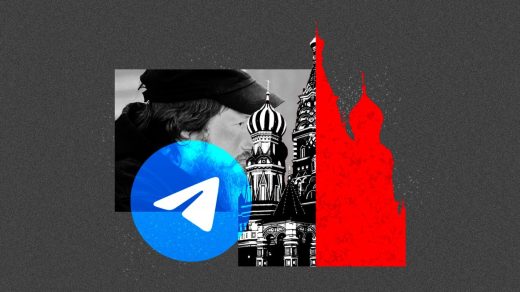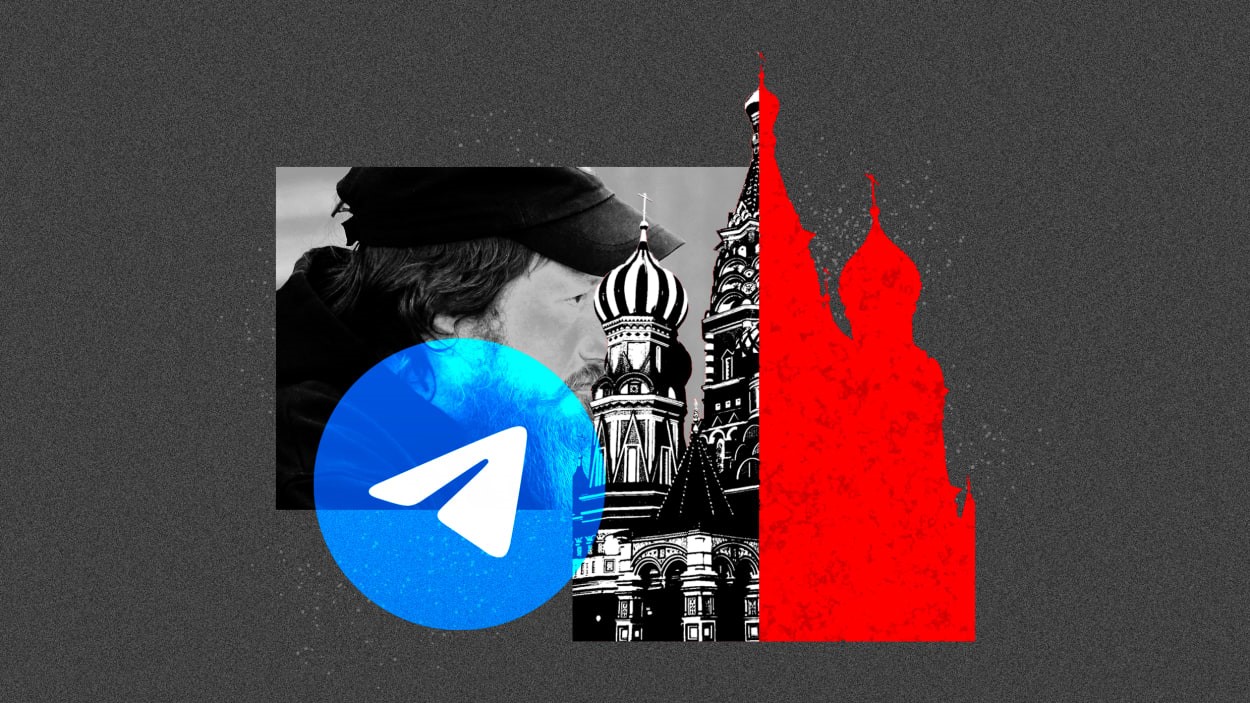Interest in pro-Russia influencer accounts is tanking on Telegram
Semyon Pegov, better known by his online pseudonym WarGonzo, is something of a household name on the Russian internet. The 39-year-old former TV journalist made his name towing the national line during the country’s 2014 invasion of Ukraine, showing loyalty to Vladimir Putin to the extent that he was awarded a medal for Merit to the Fatherland for “objective coverage in Crimea.” (Most impartial observers would suggest his coverage was far from objective).
WarGonzo has huge influence, outside and within the Kremlin. He was one of a coterie of so-called “war correspondents” invited to meet Putin in June 2023, as part of a working group on troop mobilization. That same month, 1.3 million people subscribed to his account on the popular messaging app Telegram, from where he posted videos, messages, and updates from the frontline of Russia’s invasion of Ukraine, which was launched in early 2022.
People sought out accounts like WarGonzo’s because—despite the links to Putin—social media influencers were seen as more authentic documentarians of the situation in Ukraine than state-sponsored traditional media. “They’re sort of like a double-edged sword, in the sense that they promote war, and they support the Russian army,” says Yevgeniy Golovchenko, who studies disinformation, politics and social media at the University of Copenhagen, “but sometimes they paint a much less optimistic version of the war than the state-controlled television or newspapers do.”
But by the end of 2023, Pegov’s reputation had changed. WarGonzo’s Telegram channel lost more than 200,000 subscribers in six months, closing out the year with less than 1.1 million subscribers. And Pegov is far from alone: One analysis shows similar drops for a number of war correspondents, who collectively lose around 1,000 followers a day.
Experts suggest the dwindling numbers hint at a growing disillusionment even within Russia with the direction of Putin’s warmongering. The so-called war correspondents “really were crucial in shaping the perception of the world for many Russians,” says Ilya Yablokov, a lecturer in digital journalism and disinformation at the University of Sheffield. Not all of the military influencers are directly funded by the Kremlin, says Yablokov—but practically all of them rely on formal or informal connections with the state and military in order to gain access to the frontlines of conflict, and as such feel duty-bound to parrot the official line on how Putin’s disastrous invasion of Ukraine is going.
And as Russian casualties mount in Ukraine, the gap between reality and the alternative constructed by Russia’s media and social media ecosystem is beginning to grow more obvious. “We see in surveys about public opinion in Russia that the interest in war is also declining,” says Golovchenko. He points to data by Russia’s state-connected pollster, Levada, that shows in October 2023 just 49% of respondents said they were closely following events in Ukraine—down from 64% in March 2022. That such a drop has been recorded even by Levada, which has itself been criticized by third-party observers, is notable.
“Russians try to keep a mental distance from the war, and therefore try to keep it out of their everyday life,” says Golovchenko. Being given minute-by-minute updates from the battlefield that are skewed in favor of Russia and ignore the reality is not conducive to keeping it out of their minds.
Not everyone is convinced that the data on dropping interest in Russian war correspondents is 100% verifiable. “I agree with the statement that Russians are tired of the war,” says Alena Epifanova, a research fellow at the German Council on Foreign Relations who specializes in Russia’s internet and technology. But she says the analysis, which relies on data from third-party websites tracking the popularity of Telegram channels, may not be totally reliable.
However, Epifanova does point out the importance of Telegram to Russian civil society discourse—both for those stuck within Putin’s sanctions-hit society, and those who have fled it. “Telegram is important not only in terms of propaganda content, but also support of civil society in the context of globalization, when people try to flee Russia,” she says. “Protest was always oppressed by the regime, so people organize themselves on Telegram.” (To counteract the grassroots opposition on Telegram, the Russian state has waged a propaganda war on the messaging app, including army recruitment drives in the first six months of its latest attempt to invade Ukraine.)
One other factor that could explain the drop-off in interest in Telegram war correspondents is how they have been subsumed by the state in the past two years, reckons Yablokov. “Initially, they were not really controlled by the MOD [Ministry of Defense], especially those independent ones,” he says. “And they didn’t really have any sort of guidelines on how to report what’s happening on the frontline.” They occupied a space outside state censorship, until they began highlighting major issues with how the invasion, which was meant to wrap up quickly with Ukraine’s capitulation, was going.
That drew the ire of the Kremlin, says Yablokov—and that crucial June 2023 meeting with Putin, the date from which the data tracking their decreasing audience begins. What was once an arms-length watchdog became just another state-controlled news source. “The war is not that important anymore,” says Yablokov. “The Kremlin invests a lot of resources to downplay the presence of the war in day-to-day life. And that also can be read in the numbers of popularity.”
(14)



